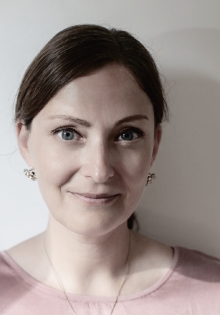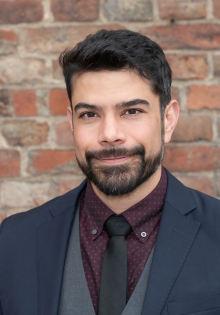Master's degree in Pedagogy: Teaching profession at vocational colleges
The degree programme in Pedagogy enables students to acquire the scientific and didactic foundations, knowledge and skills required for their future teaching activities in the upper secondary school and to further develop the corresponding personality traits. The programme aims to enable students to appropriately assess Education Studies and didactic content, methods and developments, to develop a research-based attitude towards pedagogical issues and to make sensible teaching decisions on this basis. The degree programme, which is divided into 11 modules, comprises 65 semester hours and one school and one extracurricular internship. Successful completion of the programme comprises an intermediate examination, an oral examination, a written examination and a third examination part, which can be either oral or written. The subject area "Pedagogy" can be studied at Paderborn University as part of the Bachelor's degree programmes Gymnasium/Gesamtschule (GyGe) and Berufskolleg (BK). The Bachelor's degree programme comprises a standard period of study of 6 semesters and includes 3 basic and 2 advanced modules. This is followed by a 4-semester Master's programme, which includes an integrated practical semester. The prerequisite for admission to the BA Teaching Qualification for Grammar School/Comprehensive School programme is a general higher education entrance qualification or a comparable qualification. The Bachelor's degree programme for the teaching subject is admission-restricted and subject to a local NC.
The subject area "Pedagogy" can be studied at Paderborn University as part of the Bachelor's degree programmes Gymnasium/Gesamtschule (GyGe) and Berufskolleg (BK). The Bachelor's degree programme comprises a standard period of study of 6 semesters. This is followed by a 4-semester Master's programme.
Information for prospective students
The "Pedagogy" (BK) subject area qualifies graduates of the Bachelor's and Master's degree programmes for the teaching profession at vocational colleges. The Berufskolleg is an institution that combines a wide variety of vocational school types, so that the teaching qualification at Berufskollegs entitles you to teach at Berufskollegs with their 6 different school types (Berufsschule, Berufsfachschule, Höhere Berufsfachschule, Fachoberschule Berufliches Gymnasium and Fachschule). In order to become a teacher at a vocational college, you must first complete a three-year Bachelor's degree in Education (BK). This is followed by a Master's programme in the teaching profession at vocational colleges (BK).
Studying the subject area of pedagogy prepares students for teaching in various subjects of various educational programmes in the social sector, namely
- both in training programmes leading to a vocational qualification (e.g.: educators, child carers, social assistants, curative education nurses and curative education assistants).
- as well as in educational programmes that lead to a general school-leaving qualification (e.g.: Specialised upper secondary school classes in the social and healthcare sector [Fachabitur] or the upper secondary school level [Abitur]).
- There are also classes that aim to achieve a double qualification, i.e. a general higher education entrance qualification and vocational training.
Further information about the vocational college and the training programmes can be found here.
The subject area of education can be combined with the following subject areas: pdf
You can only enrol on the Master's degree programme in Teaching at Vocational Colleges if you
- hold a higher education entrance qualification certificate (general or relevant subject-restricted) or a certificate recognised as equivalent by law or by the competent state authority, or meet the requirements for those qualified in vocational education,
- has a first professionally qualifying degree in the Bachelor's degree programme in Teaching at Vocational Colleges at Paderborn University in the same subjects chosen for the Master's degree programme or in an equivalent or comparable or relevant degree programme,
- proves knowledge of two foreign languages, usually through the university entrance qualification. Students who have learnt a language other than German as their first language and have obtained their higher education entrance qualification in German only have to prove knowledge of one additional language.
The examination board determines the equivalence, comparability or relevance. For graduates of relevant degree programmes, it determines in consultation with the candidate which additional examinations must be completed as a further requirement for admission.
Enrolment must be refused if
- the candidate has definitively failed an examination in the Master's degree programme Teaching Qualification for Vocational Colleges or in the state examination degree programme Teaching Qualification for Vocational Colleges or in a corresponding degree programme with a different title at a university within the scope of the Basic Law
- or
- the candidate is already taking a comparable examination in the Master's degree programme in Teaching at Vocational Colleges or in a corresponding degree programme with a different title at another university, or
- the examination entitlement has been lost.
The Bachelor's degree programme can begin in the winter or summer semester.
Study plan
The following table provides an overview of the modules of the degree programme and their exemplary placement in a curriculum:
| Date (semester) | Name of the module, courses |
| 1st semester | Subject didactics (MM 1) 9 CP |
| 1st + 3rd semester | Education Studies research project (MM 2) 9 CP a) Seminar: Conception and design of an education studies research project |
| 2nd semester | Practical semester |
| 3rd semester | Seminar: Realisation, evaluation and presentation of the research project |
| 3rd + 4th semester | Specialisation in development, learning and socialisation (MM 3) 9 CP a) Seminar: Current discourses on development and learning b) Seminar: Current discourses on socialisation |
Examinations: Final module examinations are taken in the teaching subject Pedagogy. The module examinations are included in the final grade for the Master's examination and in the overall grade for the subject area. They are weighted according to the credit point system. The examinations can take the following forms:
- Presentation (approx. 45 min.) with written elaboration (approx. 12-15 p.)
- Term paper/project work (approx. 20-25 p.)
- Written exam (approx. 90-120 min.)
- Oral examination (approx. 20-30 min.)
- Oral project presentation plus colloquium (approx. 45 min. in total)


